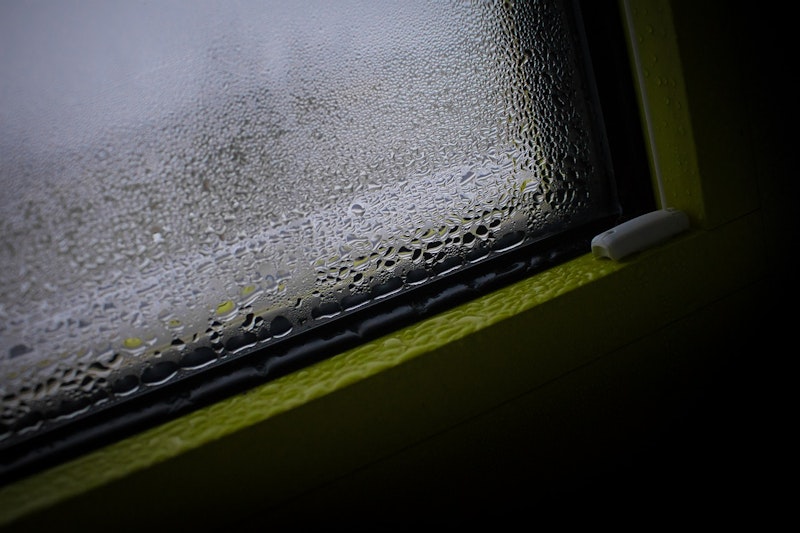
5 Elements of a Window Warranty
Purchasing replacement windows and doors for your home is an exciting opportunity to give your home a new look and without a doubt, it’s a substantial investment. There are several aspects for North Texas homeowners to consider, including the style, color, materials, and curb appeal. You want attractive windows and doors that you will love for years to come.
Additionally, you will want to consider the financial aspects, such as pricing and financing. As an informed buyer, it is vital to research the warranty, so you are not stuck with costly repairs later if there are issues. In this post, we will examine five elements you’ll want to see covered in your window warranty. You’ll get an idea of how coverage works, what to look for when comparing warranties from different manufacturers, and what questions to ask when speaking with a salesperson.
One tip we’ll give you before you start reading is to ask your window sales company what their experience is like working with manufacturers on claims. Some manufacturers have great warranties but make you jump through hoops to file a claim. Alright, now let’s get into the five elements of a window warranty so that you can understand how coverage works and what to look for when comparing warranties from different manufacturers.
5 Elements of a Window Warranty
Use the links below to skip ahead:
- Breakage - Does My Window Warranty Cover Glass Breakage?
- Failure - Does My Window Warranty Cover Seal Failure?
- Transferability - Is My Window Warranty Transferable?
- Duration - How Long is My Window Warranty Good For?
- Exclusions - What’s Not Included in My Window Warranty?
Does My Window Warranty Cover Glass Breakage?
Most manufacturers have a separate section of the warranty guarantee specifically for the glass in the window. In this section you’ll want to look for how long the glass is covered and under what circumstances the warranty applies should a problem arise. Most warranties only cover replacement and repair if the damage is the result of a defect in workmanship, manufacturing, or materials. In other words, most window manufacturer’s warranties only cover defects in glass that were there when they left the factory. You should look at the windows when they arrive to see if there are any problems before they are installed.
Look in this section to see what the manufacturer says about glass breakage. Do they cover accidental breakage on regular annealed glass? What about coverage for breakage of safety glass like tempered glass? The warranty should tell you what is covered and how the company will remedy any issues.
The glass section of the warranty will also address other issues. Breakage and seal failure aren’t the only problems you might find in your glass. An example of a defect in your glass could be an imperfection that causes the window to distort or develop a crack. Another example would be a faulty treatment applied at the factory that causes the glass to discolor affecting its appearance or visibility.
Do your windows or will your windows include grids? See how or if the warranty addresses problems with grids and other customizations.
What else you should look for in the glass warranty section:
- What are the inclusions, exclusions, and limitations of the glass warranty?
- Does the warranty address insulated glass units and glass coatings?
- Double-pane windows
- Triple-pane windows
- Low-E glass
In some cases issues with seal failure, condensation, and specialty glass are covered in an additional section. If you don’t see mention of that in the glass section of your warranty, see if there is an additional glass coverage section or look at the exclusions section. We’ll talk more about glass failure next.
Does My Window Warranty Cover Seal Failure?
When you hear someone say the window failed they’re most likely referring to seal failure. Seal failure is the leading cause of condensation between the glass panes, mold or mildew in the frame, or air leaks and drafts. Seal failure is not unusual in windows but it is unusual in new windows especially higher quality replacement windows. Regardless of the value of the windows, you’re considering you’ll want to know how your window vendor will address premature glass failure.
Ask:
- Does my warranty cover seal failure?
- Is foggy glass or condensation between the window panes mentioned in the warranty?
- What resolutions are offered in the warranty?
- How long will the warranty cover my glass against seal failure?
Is My Window Warranty Transferable?
Transferability is a valuable feature for window warranties. Windows are a big investment and beautiful, new, energy-efficient windows can be a major selling point in a home. A transferable warranty with the windows would make them even more valuable. Unfortunately, not all warranties are transferable. Manufacturers that do offer a transferable warranty may also include limitations in a transfer. You should carefully read through the agreement so you know how to transfer the warranty should the need arise and find out if there are any alterations to the coverage for the new owner. Many manufacturers allow their warranty to be transferred to a new owner if you sell your home before the coverage expires. Often, parts of the contract are valid for 20 or 30 years after the purchase date.
Additionally, make sure there are no transfer limits on the number of owners that are covered. In other words, does the warranty apply to a third or fourth owner, too? Although a stipulation of a one-time transfer is unlikely, it might be a good idea to check, particularly if you are purchasing a home from the previous owner who has installed replacement windows before selling the house.
Are you buying a new home? Have your realtor ask the seller about existing warranties on windows and doors. Does the seller at least have the name of the window or door brands or remember the name of the company that installed them? All of that information is helpful to have in case you need to file a claim.
How Long is My Window Warranty Good For?
Duration is simply the length of time the coverage is in effect. As noted above, not all window warranties provide blanket coverage for the entire unit. Instead, each part has a set time frame for coverage. The duration of coverage on specific items may be further modified based on the material or special applications such as a glaze or tint applied to the glass. Wooden windows are made from organic material and will not last as long as frames made from metal or composite materials and will have a shorter duration for their coverage.
What about lifetime and limited lifetime warranties?
A lifetime warranty means that the product is covered indefinitely. Suppose a product covered by a lifetime warranty breaks or has a defect. In that case, the company should be obligated to replace, repair, or refund it regardless of its age, the nature of the issue, or circumstances. That’s why many window warranties aren’t covered by lifetime warranties. Windows experience wear and tear, especially from the exterior side. Changes in temperature and the effects of wind, water, and sun all wear down a window.
The reality is, this terminology is misleading. While laws vary state by state, in most cases, “lifetime” can mean whatever the manufacturer defines it as in the contract. Most lifetime warranties do have limits↗. The manufacturer or retailer must disclose how it defines the term, and it usually appears in the agreement. It might be possible for a company to offer a lifetime warranty on a specific feature of a door or window unit. For example, there might be a lifetime warranty on the exterior finish that guarantees it will not fade for the duration of the installation.
Another common term you might find in your agreement is “limited-lifetime warranty.” Generally, a limited lifetime warranty means there is no specific expiration for using the warranty, but particular conditions apply. As with other parts of the warranty, it only covers damage or failure from defects from workmanship, manufacturing, or materials.
Proration is also part of some warranties. Proration means the compensation is adjusted based on the length of time passed since the purchase or installation. A warranted part that develops a problem a year after it is purchased would have different options for resolution compared to one that developed issues three years later. For example, the manufacturer might be willing to provide a new part in the case of failure a year later but might only be willing to cover part of the repair cost after three years.
You should read your contract thoroughly and look for any parts that specify a "lifetime warranty." Ensure that you clearly understand how the term "lifetime" or "limited-lifetime" is defined, and ask an authorized representative if you have questions concerning this wording. Read more about common warranty terms↗.
What’s Not Included in My Window Warranty?
What is not included in your warranty can be just as important as what is included in the warranty. Below are a few examples of things commonly found in exclusions. Most window and door warranties will specify the results of breakage or failure must be the result of defects resulting from manufacturing, materials, and workmanship. A warranty protects the consumer and provides reassurance that their purchase will remain in good working order for a set duration without out-of-pocket costs to the buyer.
Here are a few common examples of situations that a warranty will not cover:
- Labor for a covered repair, unless specified.
- Third-party installers that are not factory certified or DIY jobs that result in improper installation of the unit.
- Modifications such as adding an after-market tint or treatment to the glass.
- Adding third-party hardware such as a latch or lock or making any modifications to the unit.
Understanding the warranty for replacement windows and doors is a critical part of the purchasing process. By understanding the main parts of the agreement covering breakage, failure, duration, transferability, and exclusions, you will have a better understanding of the coverage provided by the manufacturer and you will know what to look for and what questions to ask.
Oops!
We don't currently serve your area but do want to help you plan your project. Try our Build & Price tool to get an idea of window & door costs within DFW. Your area may be higher or lower but at least you'll have some idea of the price.
Thanks for stopping by.












